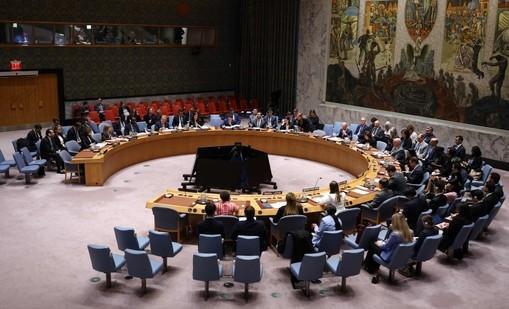
Was LeT Involved? UNSC Asks Pak on J&K Attack, Refuses to Accept ‘False Flag’ Claim
The United Nations Security Council (UNSC) has refused to accept Pakistan’s “false flag” narrative on the recent attack in Pahalgam, Jammu and Kashmir, which left several tourists injured. In a closed-door meeting, UNSC members questioned whether the terror outfit Lashkar-e-Taiba (LeT), based in Pakistan, was likely to be involved in the attack. The meeting was requested by Pakistan, but the UNSC members did not buy into its claims, according to reports.
The attack on the tourists in Pahalgam has raised concerns about the safety and security of visitors to the region. The incident has also sparked questions about the involvement of terrorist groups, particularly the LeT, which has a history of carrying out attacks in Jammu and Kashmir. Some UNSC members reportedly brought up the targeting of tourists on the basis of religion, highlighting the need for greater vigilance and cooperation to prevent such attacks.
Pakistan has been accused of harboring and supporting terrorist groups, including the LeT, which has been responsible for numerous attacks in India and other parts of the region. The LeT has been designated as a terrorist organization by several countries, including the United States, the United Kingdom, and the European Union.
The UNSC meeting was called in response to the attack on the tourists in Pahalgam, which was carried out by unidentified gunmen. The attackers targeted a bus carrying tourists, leaving several people injured. The incident has sparked widespread outrage and concern, with many calling for greater measures to be taken to prevent such attacks in the future.
Pakistan’s “false flag” narrative has been widely rejected by India and other countries, which have accused it of trying to deflect attention from its own involvement in the attack. The Pakistani government has denied any involvement in the attack, but the UNSC members are not convinced.
The UNSC meeting was a significant development, as it highlighted the growing concern about the security situation in Jammu and Kashmir and the need for greater international cooperation to address the issue. The meeting also underscored the importance of addressing the root causes of terrorism and ensuring that terrorist groups, such as the LeT, are held accountable for their actions.
The attack on the tourists in Pahalgam has also raised questions about the role of governments in providing security to their citizens. The Indian government has been accused of not doing enough to provide adequate security to tourists visiting the region, despite the presence of terrorist groups. The attack has highlighted the need for greater investment in security infrastructure and intelligence gathering to prevent such attacks in the future.
The UNSC meeting has also put pressure on Pakistan to take concrete action against terrorist groups operating from its territory. Pakistan has been accused of providing safe haven to terrorist groups, including the LeT, which has been responsible for numerous attacks in India and other parts of the region. The UNSC members have called on Pakistan to take decisive action against terrorist groups and to prevent them from using its territory to launch attacks against other countries.
In conclusion, the UNSC meeting has highlighted the growing concern about the security situation in Jammu and Kashmir and the need for greater international cooperation to address the issue. The meeting has also underscored the importance of addressing the root causes of terrorism and ensuring that terrorist groups, such as the LeT, are held accountable for their actions. It is essential for governments to work together to prevent such attacks in the future and to ensure the safety and security of their citizens.



